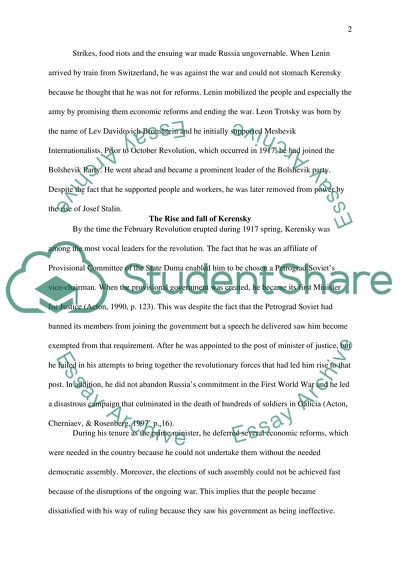Cite this document
(“Assess the importance of Kerensky, Trotsky and Lenin in the outcome of Essay - 1”, n.d.)
Assess the importance of Kerensky, Trotsky and Lenin in the outcome of Essay - 1. Retrieved from https://studentshare.org/history/1606091-assess-the-importance-of-kerensky-trotsky-and-lenin-in-the-outcome-of-the-february-and-october-revolutions-of-1917
Assess the importance of Kerensky, Trotsky and Lenin in the outcome of Essay - 1. Retrieved from https://studentshare.org/history/1606091-assess-the-importance-of-kerensky-trotsky-and-lenin-in-the-outcome-of-the-february-and-october-revolutions-of-1917
(Assess the Importance of Kerensky, Trotsky and Lenin in the Outcome of Essay - 1)
Assess the Importance of Kerensky, Trotsky and Lenin in the Outcome of Essay - 1. https://studentshare.org/history/1606091-assess-the-importance-of-kerensky-trotsky-and-lenin-in-the-outcome-of-the-february-and-october-revolutions-of-1917.
Assess the Importance of Kerensky, Trotsky and Lenin in the Outcome of Essay - 1. https://studentshare.org/history/1606091-assess-the-importance-of-kerensky-trotsky-and-lenin-in-the-outcome-of-the-february-and-october-revolutions-of-1917.
“Assess the Importance of Kerensky, Trotsky and Lenin in the Outcome of Essay - 1”, n.d. https://studentshare.org/history/1606091-assess-the-importance-of-kerensky-trotsky-and-lenin-in-the-outcome-of-the-february-and-october-revolutions-of-1917.


